
by World Moms Blog | Aug 17, 2013 | Belgium, Expat Life, World Tour
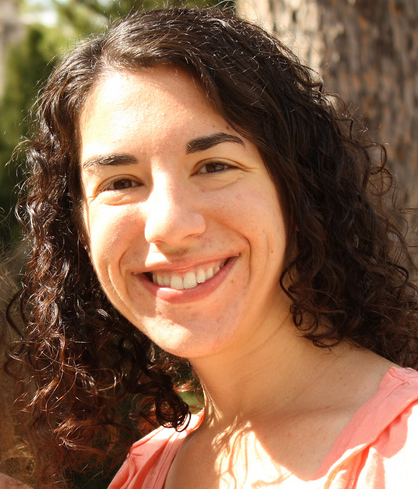
“An American Toddler in (not quite) Paris”
It’s 2 P.M. and my toddler is tuckered out and ready for his nap; and—let’s be honest—I’m ready for some coffee and couch time. However, there is one small problem; the neighborhood organ grinder has set up shop right outside our apartment.
Welcome to life in Brussels, Belgium.
There are obvious differences between living in the U.S. and living in Belgium; a royal family, socialized medicine, and Nutella encouraged as breakfast fare, just to name a few. But raising an American toddler here in Belgium has brought out some of the more unanticipated nuances between our home country and temporarily adopted one.
The differences between the U.S. and Belgium are by no means all negative. We will soon be taking our son to Paris for his third visit; he regularly has play dates with pals from Italy; Australia, Denmark, Sweden, Germany and Russia; and he’s a big fan of Pellegrino — all of which would probably not be the case if we were still in the U.S. But, discovering the differences between our old home and new one adds a little levity to the challenge of raising our son across the ocean from most of our friends and family.
It’s finally summer in Brussels, which means swimming—albeit indoors since it’s rarely hot enough to swim outside. Just like in the States, there are plenty of pools to take your kid to, but there is one difference that never fails to delight me about swimming in Belgium. Everyone, even your bald as a cue ball baby, is required to wear a swim cap. So out of all the things that can come out of babies and end up in the pool, people in Belgium are most concerned about hair. Très Bien!
The language differences are always entertaining. One of my son’s go-to activities while we walk around Brussels is to point out people who are wearing glasses, by yelling, aptly, “glasses!” as they pass by. This is all well and good, except for the fact that the way he says it makes it sound more like, “ca ca” i.e. the French word for ‘poo’. It’s probably not hard to imagine the looks you get from strangers when your kid yells ‘poo’ and points enthusiastically at them. Merde!
Once during a walk, a woman (who wasn’t wearing glasses, mercifully) said something to my son that sounded like, “mechant”, a French word meaning “mean or bad.” I was all set to spew forth my best French insults when I realized she had actually said, “il chant”, meaning, “he’s singing” and in fact, he was. Our little guy loves to sing and play music; so much so that we just might make an organ grinder out of him yet.
This is an original post to World Moms Blog by Mindi, an American expat who has been living in Brussels, Belgium for the past 5 years with her rocket scientist/cycling journalist husband and toddler son. Mindi is a professional social worker, amateur cultural anthropologist and failing French student who loves Belgian waffles, mussels, and absurdity, and who misses American bagels, mint chocolate chip ice cream, and pragmatism. Mindi’s son tweets his daily displeasures at: twitter.com/Parler_Toddler.
Photo credit to the author.
World Moms Blog is an award winning website which writes from over 30 countries on the topics of motherhood, culture, human rights and social good. Over 70 international contributors share their stories from around the globe, bonded by the common thread of motherhood and wanting a better world for their children.
World Moms Blog was listed by Forbes Woman as one of the "Best 100 Websites for Women 2012 & 2013" and also called a "must read" by the NY Times Motherlode in 2013. Our Senior Editor in India, Purnima Ramakrishnan, was awarded the BlogHer International Activist Award in 2013.
More Posts
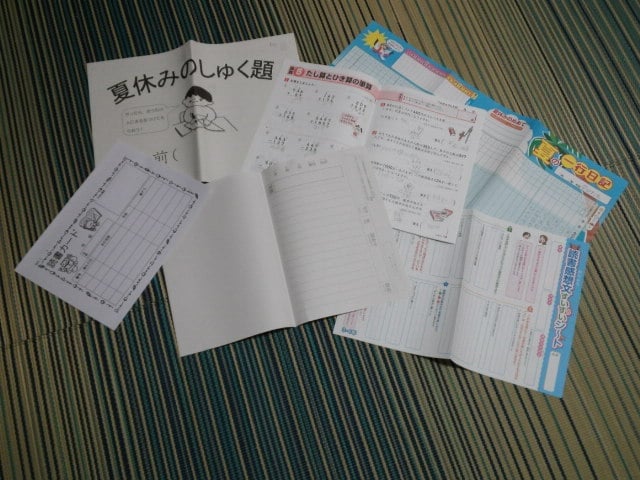
by Melanie Oda (Japan) | Aug 8, 2013 | Japan, Kids, World Moms Blog, World Motherhood
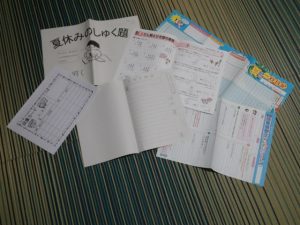 Summer vacation here in Japan is about six weeks long and falls between the first and second school terms for most kids. That means that it is not between school years, like the long, languid summer vacations I knew as a kid growing up in the US.
Summer vacation here in Japan is about six weeks long and falls between the first and second school terms for most kids. That means that it is not between school years, like the long, languid summer vacations I knew as a kid growing up in the US.
Before summer vacation starts, each class at my son’s school has a meeting, the gist of which is:
Thou shalt not forget what thou hast learned first term.
Now as any good educator knows, you can’t just leave it to the kids or, heaven forbid, their parents. We are all full-to-the-brim of good intentions, but, well, sometimes Life (and okay, I’ll admit, TV) has a habit of getting in the way. No, schoolchildren in Japan are laden down with homework that must be completed during summer “vacation.”
This is especially problematic for me, not being a native Japanese speaker nor possessing an arsenal of perfectly-tapered-when-appropriate-and-blunt-when-called-for kanji calligraphy skills. My son and I struggle through his homework every year. My husband does it with him on weekends (sometimes) when he is here, but to get through the various booklets and worksheets and projects and -eek!- a book report, we have to plug through at least two pages a day. There are no days off at weekends or time off for good behavior. (more…)
If you ask Melanie Oda where she is from, she will answer "Georgia." (Unless you ask her in Japanese. Then she will say "America.") It sounds nice, and it's a one-word answer, which is what most people expect. The truth is more complex. She moved around several small towns in the south growing up. Such is life when your father is a Southern Baptist preacher of the hellfire and brimstone variety.
She came to Japan in 2000 as an assistant language teacher, and has never managed to leave. She currently resides in Yokohama, on the outskirts of Tokyo (but please don't tell anyone she described it that way! Citizens of Yokohama have a lot of pride). No one is more surprised to find her here, married to a Japanese man and with two bilingual children (aged four and seven), than herself. And possibly her mother.
You can read more about her misadventures in Asia on her blog, HamakkoMommy.
More Posts

by Nancy Sumari | Aug 7, 2013 | 2013, Interviews, Motherhood, Parenting, World Interviews, World Moms Blog Writer Interview
 Where in the world do you live? And, are you from there?
Where in the world do you live? And, are you from there?
I live in Dar es salaam, Tanzania. I was born in Arusha, on the northern part of my country, raised in Nairobi, Kenya and came back home after finishing off my schooling and then moved to Dar es salaam where i am currently based.
What language(s) do you speak?
I fluently speak and write my native Swahili and English, and i also speak a rusty French and Italian
When did you first become a mother?
I became a mom in April of 2011 when I had my baby girl, Zuri Gabrielle.
Is your work, stay-at-home mom, other work at home or do you work outside the home?
I am a social entrepreneur working outside of my home. I do get a chance to work from my home every so often, and I love it!
Why do you blog/write?
I have been an individual who thrives on sharing stories and learning from others, and so blogging was natural for me. After I became a mom I felt more strongly than ever about sharing stories about parenting and motherhood because I was learning and discovering so much. I wanted to have a platform where I could engage other mothers to share their experiences as well.
How would you say that you are different from other mothers?
I am very similar in the fundamental fact that all mothers want the best for their children. I am very traditional in the values that I instill in my daughter, but modern in terms of my approach.
What do you view as the challenges of raising a child in today’s world?
The biggest challenge today is that kids have so much access and everything is so very fast paced, sometime beyond what we as parents can and should control. Knowledge, information (both factual and not so factual), fruits of globalization and diversity are readily available in real time to our children without filter. This, to me, poses a great challenge to raising a child today.
How did you find World Moms Blog?
After having a mom blog, I always wanted to read what others moms of the world were writing about and experiencing. So, I was always on various search engines looking for mom blogs, and I found World Moms Blog. I have been a fan since.
Nancy Sumari is our lastest contributor from Tanzania. She writes at http://mamazuri.com/
Photo credit to the author.

by Kristyn Zalota | Aug 6, 2013 | 2013, Birthing, Clean Birth Kits, Laos, World Moms Blog, World Voice
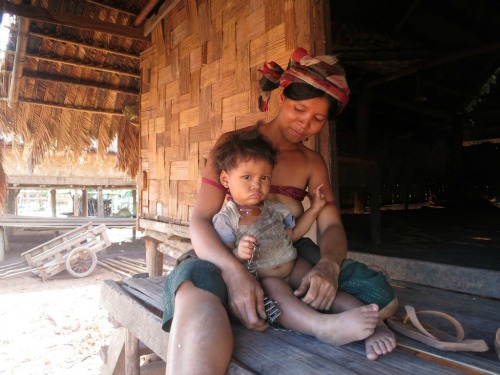
As many of you know, one year ago I started CleanBirth.org, a non-profit aimed at reducing infant and maternal mortality in Laos. We provide nurses with training, birthing supplies and funding to educate village volunteers about safe birthing practices.
One tenet of my organization is that local people call the shots on-the-ground, while Westerners provide the resources and funds. Local nurses are empowered to develop and execute programs which empower expecting mothers to have safer births.
There’s that darling of non-profit speak: empower. Oxford defines it: to “… make (someone) stronger and more confident, especially in controlling their life and claiming their rights.” A worthy goal, certainly, but sometimes I worry:
“Can foreigners really empower locals to find long-term solutions to their own problems?”
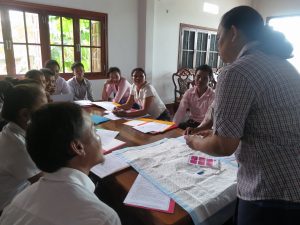
Photo By Kristyn Zalota
I thought about this on my long journey to Laos in June to train twelve nurses. On this second CleanBirth Training trip, I wanted to see that the nurses were taking ownership of our CleanBirth Kits Program. I also wanted to hear their new ideas about ways that we can make birth safer.
From the beginning, it was clear they the nurses wanted to learn and participate. They were “…thrilled to have been invited…none of them had ever been asked to a training like this before.” They asked pertinent questions about the CleanBirth Kits Program and grasped the importance of accurately reporting data.
As we moved on to additional ideas for making birth safer, they became even more engaged. Dr. Nong, my Lao partner, had to write furiously to keep up with the nurses’ suggestions. I sat back and smiled, thinking:
“This is exactly the way it should be. I, the Westerner, am in the background, while they, the locals, are finding their own answers.”
In the end Dr. Nong and the nurses drafted an outline for our new initiative: CleanBirth Volunteer Training. The nurses will gather one woman from each of the villages that she serves to learn about Clean Birth Kits, safe birth practices, and prenatal and infant care. The first CleanBirth Volunteer Training will be held in October.
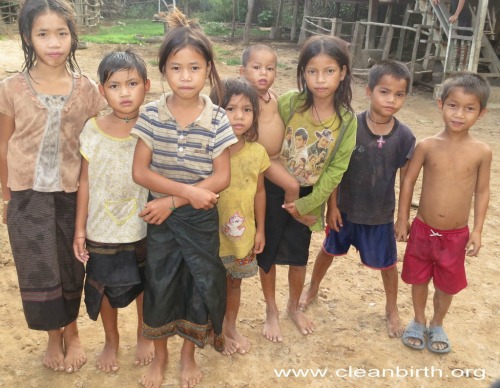
So have we empowered these nurses? Are we giving women more control over their lives and births in the 100 remote communities that we serve? I’d say that we are off to a good start. The nurses have the funds and the tools that they need. They have designed the solution themselves. Now, we must wait and see what happens next.
This is an original World Moms Blog post by Kristyn Zalota.
What do you think? Is it truly possible as an outsider to empower locals of another culture in a sustainable way?
Kristyn brings her years of experience as an entrepreneur and serial volunteer to CleanBirth.org. She holds a MA, has run small businesses in Russia and the US, and has volunteered in Nicaragua, Costa Rica, Thailand, Cambodia, Laos and Uganda on projects related to women’s empowerment.
After having children, Kristyn became an advocate for mothers in the US, as a doula and Lamaze educator, and abroad, as the Founder of CleanBirth.org. She is honored to provide nurses in Laos with the supplies, funding and training they need to lower maternal and infant mortality rates in their villages.
More Posts

by Patricia Cuyugan (Philippines) | Jul 25, 2013 | Discipline, Health, Me-Time, Parent Care, Philippines, Stress, World Moms Blog, World Motherhood
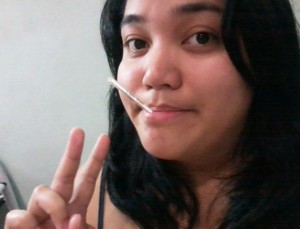 I’ve been on supermom mode over the last few months. School has started for us here in the Philippines, and for the first time my son is spending the whole day in class. Because of this I’ve been on 5am kitchen duty preparing breakfast and packing snacks and lunch. I’ve been spending most of my days at home, working. I try to take on as many projects as I can these days because at present, mine is the primary source of income for our family. Afternoons are spent studying and doing homework with the kid after school. In between everything else, there are errands to run, meetings and events to attend, and countless other things to do. Thankfully, my husband has taken over driving duties. He also helps with the homework. He brings me ice cream when he knows I’m extra stressed out. I am glad that I’m not alone in this, but it has honestly begun to take its toll.
I’ve been on supermom mode over the last few months. School has started for us here in the Philippines, and for the first time my son is spending the whole day in class. Because of this I’ve been on 5am kitchen duty preparing breakfast and packing snacks and lunch. I’ve been spending most of my days at home, working. I try to take on as many projects as I can these days because at present, mine is the primary source of income for our family. Afternoons are spent studying and doing homework with the kid after school. In between everything else, there are errands to run, meetings and events to attend, and countless other things to do. Thankfully, my husband has taken over driving duties. He also helps with the homework. He brings me ice cream when he knows I’m extra stressed out. I am glad that I’m not alone in this, but it has honestly begun to take its toll.
I know that a lot of moms are guilty of concentrating too much on taking care of their kids, their husbands and their households that they forget to take care of themselves. I just never thought that I would one day become that sort of mommy. Truth be told I’ve gained so much weight from stress-eating. I’ve completely given up on the exercise routine I promised myself that I would stick to. I’ve been sleeping late and I waking up before dawn. I know that I’ve been extra tired because some nights I just pass out after dinner and wake up when my alarm goes off the following morning. The funny thing is, even though my body has been telling me to slow down, I’ve been choosing to listen to that little nagging voice in my head telling me that other moms have so much more to do than I do, and that I should just keep on keeping on.
And so I did.
And then I got sick. (more…)
Patricia Cuyugan is a wife, mom, cat momma, and a hands-on homemaker from Manila, whose greatest achievement is her pork adobo. She has been writing about parenting for about as long as she’s been a parent, which is just a little over a decade. When she’s not writing, you can usually find her reading a book, binge-watching a K-drama series, or folding laundry. She really should be writing, though! Follow her homemaking adventures on Instagram at @patriciacuyugs.
More Posts
Follow Me:



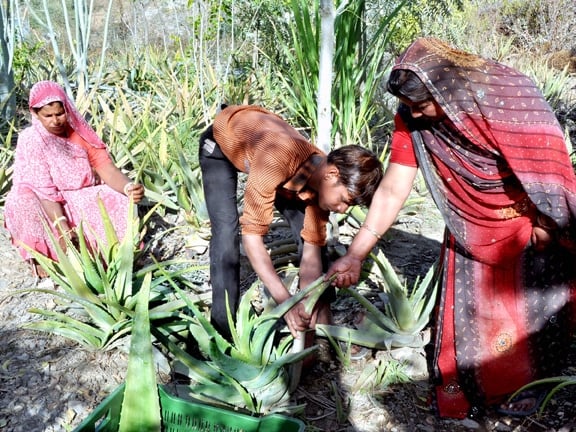
by Purnima Ramakrishnan | Jul 23, 2013 | Casting a Wider Net, Economy, Education, Feminism, Government, Human Rights, Humanity, India, Inspirational, International, Motherhood, Nature, Purnima, Social Good, The Alchemist, United Nations, Women's Rights, World Moms Blog, World Voice
A couple of weeks ago, we featured a remote village, Piplantri (Western India) on the Gates Foundation. Piplantri is a model village, whose actions of change have been very well received all over India.
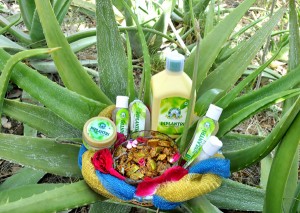
Aloe Vera products from the small scale industries
They plant 111 trees for every girl child who is born, create a fixed deposit of INR 31,000 (approx. USD 620) in her name which attains maturity when she is 18 years old and chalk up a legal agreement between the parents of the girl child and the government that they won’t get their girls married off before she is 18 years old. They also have Aloe Vera industries in which the women of the village are employed. So they have achieved MDGs #3 (promote gender equality and empower women), #4 (reduce child mortality), and #7 (ensure environmental sustainability) at one go. Today on the blog, I would like to introduce Mr. Shyam Sundar Paliwal and his wife, Anita, who were the pioneers of this change action in their village. Anita is 42 years old, and she got married after she finished her 12th grade. It was an arranged marriage and the couple were happy.
Their first daughter Kiran was 18 years old when she passed away. She died due to dehydration. That was the turning point in their life, and they vowed to make lives of others happy.
They also have another daughter Hemanshi (22) and a son Rahul (15) who is in 10th grade. Hemanshi is married and has a child, too.
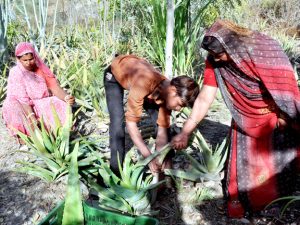
The women of the village tending Aloe Vera
Anita recalls that when she came to her in-laws place after she got married, the first lesson she received from her father-in-law was to plant banana saplings such that they bear fruits during the rainy season and then plant mango saplings around the banana trees. Banana trees absorb water during the monsoon and transfers this water to the mango trees through its roots during the arid summer season. She says she has stuck to this piece of advice to date in her village and ensured that her villagers follow such age-old farming wisdom.
Anita, who is the wife of the ex-sarpanch (ruling political head) of the village, Piplantri, is a very active community member. She is a Zila Parishad Member (Elected person of the district council). Her husband has always been supportive of her as a woman and wants her to do her best for her villagers. He has never restricted her in any way. Though she is more educated than him, he has never been jealous of her, but has only encouraged her and furthered her growth and development as an active member of their society and community. She says, if only all women of the world gets a husband like Shyam, the women of the world will be better off and we would not be speaking of women’s rights here.
Shyam Sundar won the panchayat elections in 2005 and he says he first wanted the people who worked in the government offices to be comfortable. He installed the first AC in the office, brought in some comfortable furniture and ensured that people in all echelons of the society were treated equally. (In rural India, at times, the upper caste people are given more respect and sit on chairs, whereas the lower caste people are treated shabbily and sit down on the floor. Read more about the Evils of Caste system in India here). He said, he worked on the psychology of the ruling body to make them happy and comfortable. He says, only if they are happy, they would start working on reform measures and help provide for the remaining villagers. He, at his own expense, made the offices a comfortable place to work and conducive to provide better results.
He started small. In this difficult water shortage era, he diverted the waste water from all houses/offices towards the fields. Better water conservation was ensured. If waste water does not stagnate anywhere, there would be no mosquitoes and no dengue and fewer diseases. So, he solved primarily problems with simple, cost-effective solutions.
He installed drinking RO water systems in schools. Brought in furniture for the students and made the public schools better than the expensive private schools. People started flocking towards government schools. He raised awareness slowly and in a small way, which evolved out.
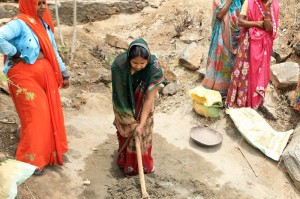
Mrs. Anita Paliwal working on the Water Harvesting Structure
He started rain water harvesting with the help of government. He built canals. He used the women of the village who were unemployed. To the left is a picture of Anita, who at times does not hesitate to get into the fields with a mean sickle. She and her husband were instrumental in starting the water harvesting structure of the village. In most of his welfare activities 90% of the employed are women and 10% alone are men. Women of the village have been blessed indeed to have him there, says Anita. In addition to 25,00,000 Aloe Vera plants, there are 10,000 rose shrubs which are also used in small-scale industries for toiletries and medicinal supplements. Women are employed in all of these schemes.
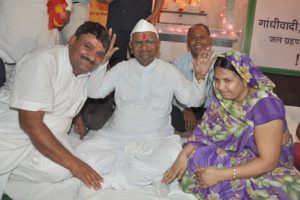
Mr. Shyan Sundar Paliwal and Mrs. Anita Paliwal with Anna Hazare
He started the Kiran Nidhi Yojna with the 76-year-old International Social Activist, Anna Hazare to ensure that no girl child is married off before 18 years old. This man who himself did not study in a college, ensures that all girl children in his village get a college degree. He also nudges the parents to get their girls married off in collective wedding, so that money is conserved and better utilised for other public welfare schemes or for their own savings. This scheme also granted government land to the parents in return for planting 111 trees on the birth of their daughter in that land, and tending to it to fruition before their girl child is 18 years old. On the death of any community member, the family is requested to plant trees again.
He says this again works on their psychology. The girl children treat the trees as their own brothers and sisters. After all, the saplings were planted on the day of their birth. And the parents get emotionally attached to the trees which came into existence on the day their family member was born or died. They then take care of it as a family member, and would under no means cut it down. He says, it is all in the hearts of the people. If people get involved with their hearts, anything is possible. He made people to get emotionally attached to nature and trees and the earth.
I learnt something new from Anita and Shyam that day – Ecofeminism. It is such a beautiful concept. Women and nature have been connected since time immemorial and this couple have harnessed it.
After all, he who was not highly educated could work on such things and make that beautiful village into a heaven, he says, the whole world could change too. And we would have no need to talk about the MDGs or uplifting of any downtrodden society/community.
When asked how he felt when his village was showcased by the Gates Foundation on their Blog, he gushed with happiness and pride. The district collector and Panchayat officials were so excited, too, he said. But his only complaint was that he could not get a hard copy of the magazine which he could show his villagers. He is so proud like a father, like the father of the heaven he created.
He also invites donation to his Kiran Yojna Scheme for the fixed deposit of INR 31000 of every girl child born in his village. He invites the contributors, readers and fans of World Moms Blog to make a trip to Piplantri. He wants people to embrace such change and for them to build upon it to suit their own society, and community.
This is an original post to World Moms Blog by Purnima, our Indian mother writing from Chennai, India. Her contributions to the World Moms Blog can be found here. She also rambles at The Alchemist’s Blog.
Photo credit to Piplantri.com
What do you think about the traditions put in place to support girls and women in the community of Piplantri?




 Summer vacation here in Japan is about six weeks long and falls between the first and second school terms for most kids. That means that it is not between school years, like the long, languid summer vacations I knew as a kid growing up in the US.
Summer vacation here in Japan is about six weeks long and falls between the first and second school terms for most kids. That means that it is not between school years, like the long, languid summer vacations I knew as a kid growing up in the US.






 I’ve been on supermom mode over the last few months. School has started for us here in the Philippines, and for the first time my son is spending the whole day in class. Because of this I’ve been on 5am kitchen duty preparing breakfast and packing snacks and lunch. I’ve been spending most of my days at home, working. I try to take on as many projects as I can these days because at present, mine is the primary source of income for our family. Afternoons are spent studying and doing homework with the kid after school. In between everything else, there are errands to run, meetings and events to attend, and countless other things to do. Thankfully, my husband has taken over driving duties. He also helps with the homework. He brings me ice cream when he knows I’m extra stressed out. I am glad that I’m not alone in this, but it has honestly begun to take its toll.
I’ve been on supermom mode over the last few months. School has started for us here in the Philippines, and for the first time my son is spending the whole day in class. Because of this I’ve been on 5am kitchen duty preparing breakfast and packing snacks and lunch. I’ve been spending most of my days at home, working. I try to take on as many projects as I can these days because at present, mine is the primary source of income for our family. Afternoons are spent studying and doing homework with the kid after school. In between everything else, there are errands to run, meetings and events to attend, and countless other things to do. Thankfully, my husband has taken over driving duties. He also helps with the homework. He brings me ice cream when he knows I’m extra stressed out. I am glad that I’m not alone in this, but it has honestly begun to take its toll.












